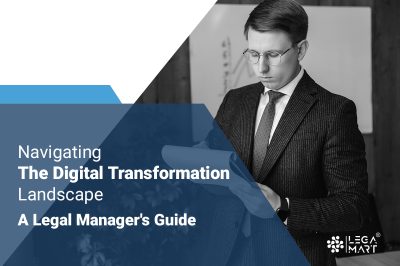Introduction
As small businesses navigate the volatile landscape of the UK economy, improving debt recovery has become increasingly crucial. Striking the right balance between preserving client relationships and ensuring financial stability can be difficult, but this Legamart article is here to help you.
Small businesses can gain a competitive advantage in reclaiming owed funds by delving into the complexities of the UK’s legal framework and understanding the nuances of debt recovery regulations. Furthermore, we look into proactive communication strategies that facilitate constructive dialogue with debtors, assisting in resolving issues and recovering debts more effectively. It will also provide a comprehensive guide to empowering small businesses to enhance their debt recovery processes while nurturing growth in a challenging economic landscape through legal knowledge, strategic communication, and tailored approaches.
Types of Debt Recovery for Small Businesses

For Small businesses and SMEs, secondary operations need time and resources they may not always have. As a result, debt collection for small firms needs a focused approach.
Automate Communication with Debtors
To settle an account balance, creditors must contact debtors multiple times. However, the Fair Debt Collection Practices Act (FDCPA) requires collectors to follow specific communication requirements. It limits the quantity, timing, and location of interactions between creditors and borrowers. Debt collectors may contact debtors via phone, letter, email, or text within a specific time frame. Failure to observe these standards may lead to a debtor suing the creditor.
Debt collection software assists you in segmenting debtors based on a variety of characteristics. These characteristics include debt kind, payback history, financial situation, etc. You may keep appropriate contact with debtors based on this information.
Sending payment reminders to consumers will make debt collection easier for small firms. You may use the program to deliver messages to borrowers by SMS, email, and other means. Furthermore, lenders might include a payment link in communications sent to borrowers. It will enable them to make the payments immediately.
Categorize Borrowers and Define Collection Strategies
Debt recovery is time-consuming for small firms. It gets much more difficult when the gathering procedure is disorganized. As a result, categorizing the business’s borrowers is critical. You may categorize them as high, medium, or low priority. You may design collection techniques based on these priorities. For example, high-priority defaulters will be contacted directly, whereas low-priority defaulters will get automated payment reminders. Depending on your company and the territory you serve, you may specify your category criteria, such as loan type, region, DPD (Days prior Due), default amount, prior loan/default history, and more.
Connect Teams for Smooth Operations
The debt collection method is just as good as the collection personnel. As a result, for improved productivity, teams must remain well-connected. With networked teams and people, one can guarantee that your company’s recovery activities run more smoothly.
Using a collection CRM (customer-relationship management) software helps keep your staff informed. Call centers may use this to evaluate the profiles of loan defaulters. As a result, they must ensure that they follow up as soon as possible to obtain trustworthy information.
Another advantage of maintaining an open line of communication between teams is immediate technical help. The customer support staff may communicate with agents to offer technical updates in an unexpected difficulty. Leadsquared collections CRM offers such cooperation features and assures a seamless debt recovery process.
Monitor Activities in Real-Time
Businesses may profit from real-time surveillance of the customers’ activity. Using such a system may make debt collectors’ lives easier. They will become aware of their borrowers’ actions. When consumers complete the repayment, businesses will be notified quickly. It ensures that you don’t disturb borrowers with unneeded follow-ups.
Furthermore, real-time communication of debt collection will save lenders a significant amount of time. They no longer have to endure painful healing processes. Agents will no longer be required to visit or phone consumers to collect debt. It would also guarantee that lenders concentrate more on debtors who have yet to repay. As a result, they can handle debt collection situations more effectively.
Trace Debtors
Some debtors may move without informing you of their new address. Such defaulters may make debt collection considerably more difficult. Some debtors may move without informing you of their new address. Such defaulters may make debt collection considerably more difficult.
However, there are methods for locating such defaulters. Several reputable tracing services assist lending organizations in locating defaulters. Lenders may track down defaulters and collect bad debts by implementing such services.
Small Business Debt Recovery Issuing a County Court Claim

There is another way for small businesses to recover their debt if they cannot succeed within the pre-litigation stage. One may file a County Court Claim. Taking your customer to court might be a tough choice, but it is better for the health of your business.
When your customer receives a claim from the court, they may take the debt more seriously. Pursuing the unpaid invoice is a reasonably inexpensive approach since the Court cost ranges from £35 to 5% of the claim’s value, depending on the claimed amount. If you are successful, you may reclaim this charge from the debtor.
The claim is often used as an inducement for the debtor to pay. They do not want to devote time and resources to fighting the procedures. It also adds to the point that the parties do not want a judgment to interfere with their capacity to get credit, and hence, having a claim against the customer would be beneficial.
Tips for Enhancing Debt Recovery Efforts for Small Businesses

Automatic Pending Debt Statements
Automating the preparation of statements will assist debt collection agents in reducing their workload based on Debt Recovery Strategies and the notification of client payments. These automatically generated payment letters may be sent or texted to the borrower.
Debt Recovery Software
Debt collection and debt recovery software provides small businesses the most effective method of recovering debts. These updated technologies replace collection agencies by automating payment reminders, sending bills, and offering payment terms. The program works in tandem with your existing accounting software and administrative solutions. It results in speedier outcomes, lower operational expenses, and better customer relations.
Adopt a Single Debt Perspective
The most forward-thinking SMEs are investing in ‘Single Picture of Debt’ technology, which provides a comprehensive picture of the overall debt a person owes across many departments within a single organization. This 360-degree perspective of each client gives a comprehensive knowledge of each debtor and may serve as the basis for assisting a person in repaying their whole arrears to the SME.
Conclusion
Enhancing debt recovery for small businesses in the UK requires a multi-faceted approach that combines proactive measures such as automotive measures, efficient processes, and strategic communication with customers so that their relations won’t be affected. Small businesses can significantly reduce the risk of overdue payments by implementing clear credit policies, conducting thorough customer assessments, and fostering open dialogues with clients.
Leveraging technology, such as automated reminders and online payment portals, streamlines the debt recovery process and improves customer engagement. Additionally, seeking professional advice and utilizing legal recourse when necessary can support businesses to recover outstanding debts while maintaining positive customer relationships. Ultimately, by adopting these strategies tailored to the unique circumstances, small businesses can achieve more predictable cash flow and long-term sustainability.





